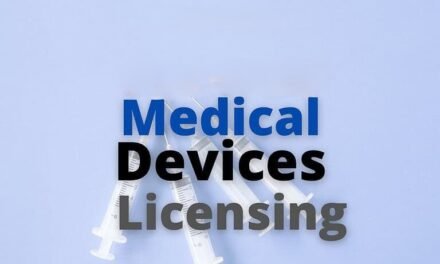
The Role of Artificial Intelligence in India’s Medical Device Future

Artificial Intelligence (AI) is transforming the global healthcare landscape, and India’s medical device industry is no exception. By enabling more precise diagnostics, personalized treatments, and efficient workflows, AI is poised to play a pivotal role in shaping the future of India’s medical device sector. With its growing domestic healthcare demand, expanding technological infrastructure, and government-backed initiatives, India is well-positioned to harness AI’s potential.
1. AI in Medical Devices: Key Applications:
A. Enhanced Diagnostics:
- Imaging and Radiology: AI-powered tools can analyze X-rays, CT scans, and MRIs with greater speed and accuracy than human radiologists.
- Examples: Detecting early-stage cancer, fractures, or cardiovascular issues.
- Point-of-Care Devices: Portable devices integrated with AI offer instant diagnostic results, especially in rural or underserved areas.
B. Personalized Medicine:
- AI-enabled devices use patient-specific data to tailor treatments, improving outcomes.
- Examples: Smart insulin pumps that adjust doses based on real-time glucose levels.
C. Predictive Analytics:
- AI algorithms analyze historical and real-time data to predict disease outbreaks, patient deterioration, or treatment success rates.
- Examples: Predicting patient responses to medications or surgeries.
D. Remote Monitoring and Telemedicine:
- IoT-connected AI devices allow real-time monitoring of patients at home, reducing hospital visits.
- Examples: Wearable devices for heart rate, oxygen saturation, and blood pressure monitoring.
E. Surgical Assistance:
- Robotic-assisted surgical devices with AI provide greater precision and minimize risks.
- Examples: AI-driven navigation systems in orthopedic and neurosurgeries.
F. Workflow Optimization:
- AI helps streamline hospital operations, such as scheduling surgeries, managing inventory, and automating repetitive tasks.
- Examples: Optimizing device usage in hospitals to reduce downtime.
2. Opportunities for AI in India’s Medical Device Industry:
A. Addressing Healthcare Gaps:
- Rural Healthcare: AI-enabled portable devices can deliver high-quality care to remote areas where access to specialists is limited.
- Affordable Diagnostics: AI reduces diagnostic costs, making healthcare more accessible.
B. Expanding Digital Health Ecosystem:
- India’s growing adoption of telemedicine and digital health records integrates seamlessly with AI-powered devices, enabling holistic care delivery.
C. Driving Innovation:
- Startups and research institutions in India are leveraging AI to develop cutting-edge solutions, from diagnostic tools to surgical aids.
D. Export Potential:
- India’s cost advantage in manufacturing AI-driven devices positions it as a global supplier to emerging markets.
E. Policy and Infrastructure Support:
- Initiatives like Ayushman Bharat Digital Mission and Atmanirbhar Bharat provide a conducive environment for AI innovation in healthcare.
3. Challenges in Adopting AI in Medical Devices:
A. Data Challenges:
- Data Availability: Lack of comprehensive, high-quality datasets hampers AI model development.
- Data Privacy: Ensuring patient data protection while complying with laws like the Personal Data Protection Bill.
B. Regulatory and Compliance Barriers:
- Lack of AI-Specific Guidelines: Current medical device regulations in India do not fully address AI-enabled technologies.
- Global Standards Alignment: Ensuring Indian AI devices meet international compliance standards for exports.
C. Technological Barriers:
- Limited AI integration expertise among traditional medical device manufacturers.
- High costs of advanced computational hardware required for AI deployment.
D. Ethical and Bias Issues:
- AI algorithms may inherit biases from training data, leading to unequal treatment or misdiagnosis.
- Transparency in AI decision-making remains a concern for regulatory bodies and end-users.
4. Strategies for Accelerating AI Adoption:
A. Strengthening Data Infrastructure:
- Establish centralized, anonymized health data repositories for AI training and development.
- Collaborate with hospitals and diagnostic labs to standardize data collection practices.
B. Evolving Regulatory Frameworks:
- Develop clear guidelines for AI-enabled devices, addressing approval processes, post-market surveillance, and accountability.
- Align domestic regulations with global standards like FDA and CE requirements.
C. Promoting Collaboration:
- Foster partnerships between startups, academic institutions, and medical device manufacturers for AI-driven R&D.
- Encourage cross-industry collaboration, such as between IT companies and healthcare providers, to integrate AI seamlessly.
D. Investing in Skill Development:
- Launch training programs focused on AI, data science, and machine learning for healthcare professionals and engineers.
- Include AI modules in biomedical engineering curricula to prepare the next generation of innovators.
E. Incentivizing Innovation:
- Provide tax incentives and grants for companies developing AI-enabled medical devices.
- Establish innovation hubs and incubators to support AI-driven healthcare startups.
F. Building Public Trust:
- Educate healthcare providers and patients on the benefits and limitations of AI-driven devices to increase acceptance.
- Ensure AI models are explainable and transparent to foster trust in their outcomes.
5. Case Studies: AI in Action:
A. Portable AI Diagnostic Devices:
- AI-driven point-of-care diagnostic devices like portable ECG and ultrasound machines are being used in rural India to provide accurate diagnoses in real time.
B. Predictive Healthcare in Hospitals:
- AI-based systems are being implemented in urban hospitals to predict ICU patient deterioration, enabling proactive interventions.
C. Startups Leading Innovation:
- Companies like Niramai use AI for thermal imaging to detect breast cancer at an early stage, making screening affordable and accessible.
6. The Road Ahead: AI and the Future of Medical Devices in India:
A. Integration with Digital Health Ecosystems:
- AI-enabled devices will play a central role in India’s transition to a fully digital healthcare system, integrating with electronic health records and telemedicine platforms.
B. Driving Global Competitiveness:
- By focusing on cost-effective AI innovation, India can position itself as a leader in affordable, high-quality medical devices for global markets.
C. Transforming Preventive Healthcare:
- AI-powered wearables and diagnostic tools will enable proactive health monitoring, reducing the burden on tertiary care systems.
D. Enhancing Healthcare Equity:
- AI has the potential to bridge healthcare disparities by bringing advanced diagnostics and treatments to underserved populations.




























